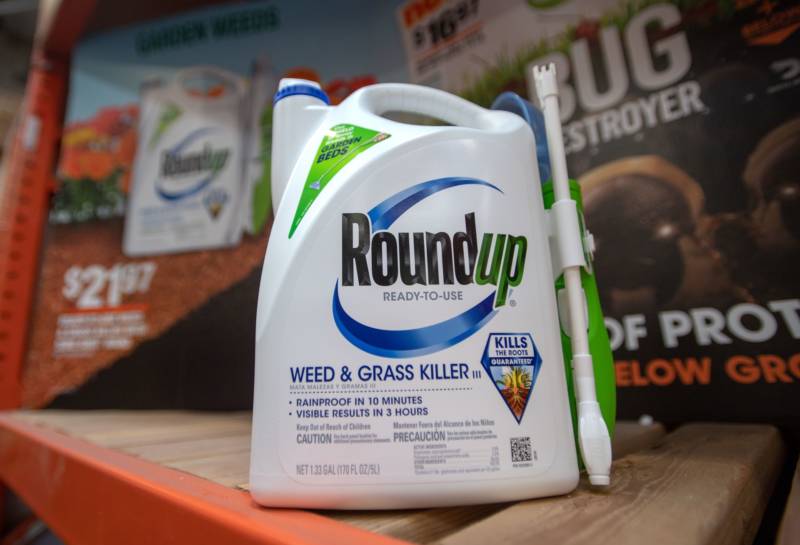Monsanto denies that its product causes cancer.
The new case is the first to go to trial in a grouping of 150 similar cases, and there are more than 760 lawsuits pending in U.S. District Court in San Francisco. According to the advocacy group U.S. Right to Know, there are more than 11,000 cases against Monsanto in the broader United States, alleging that Roundup exposure causes non-Hodgkin’s lymphoma.
Roundup first came on the market in 1974 and is still sold today.
In his opening statement Thursday, the couple's lead attorney Brent Wisner told a 12-person jury that the likelihood of both of his clients being diagnosed with the same type of lymphoma, in this case a diffuse large B-cell lymphoma, is 1 in 20,500.
Wisner estimated that the Pilliods sprayed 1,500 gallons of Roundup over the course of 35 years.
“Monsanto keeps telling the world that this is stuff is safe, that it doesn't cause cancer,” Wisner said. “When you look at the evidence objectively, no one agrees with them.”
Monsanto’s counsel, Tarek Ismail, argued in his opening statement that both of the Pilliods had serious prior health risks: A history of prior cancer, autoimmune diseases and years of smoking. He said these risk factors make it impossible to determine the cause of the couple's cancers.
A debate has continued for years about whether or not the active ingredient in Roundup, glyphosate, is carcinogenic. Regulatory bodies worldwide, including the federal Environmental Protection Agency, Health Canada and the European Food Safety Authority have said that glyphosate does not cause cancer. However, in 2015 the International Agency for Research on Cancer, part of the World Health Organization, categorized the substance as a “probable carcinogen.”
The burden will rest on Wisner and his team to prove that Roundup can cause cancer and that the weed killer was a contributing factor in the development of the Pilliods’ cancer. In opening statements that lasted more than two and a half hours, Wisner outlined how the plaintiffs would maneuver the science-heavy trial. His approach was similar to the approach of plaintiffs in the other two cases.
To prove that Roundup is carcinogenic, Wisner said he would highlight studies done on rodents, cell studies and epidemiological evidence. Monsanto’s attorneys said that the company and independent researchers have done many studies to verify that glyphosate and the Roundup formulation are safe.
The trial is expected to last about a month. Witness testimony begins April 2.

